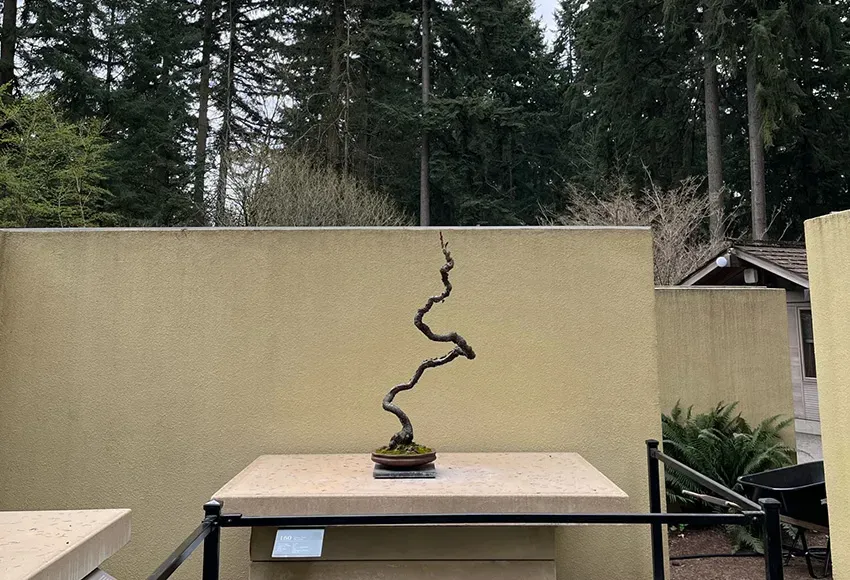About 20 minutes south of downtown on I-5, at exit 143 toward Federal Way, rests a hidden gem: the Pacific Bonsai Museum. But that's not all – the Rhododendron Species Botanical Garden is directly adjacent to the museum.
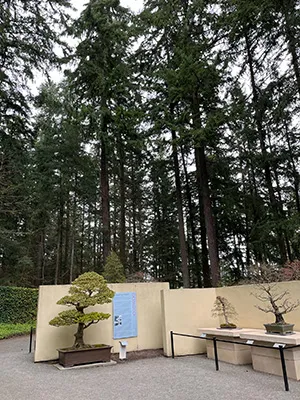
These botanical havens are both part of what used to be the Weyerhaeuser corporate campus, a property five times the size of Disneyland, according to KUOW. When you exit the freeway, you'll glimpse the main building of the now-closed campus, an architectural relic worth checking out as well.
The PBM and RSBG were both previously owned by Weyerhaeuser and eventually given to a nonprofit and leased a permanent garden site, respectively. Now, the two thrive alongside one another as potentially the best spot for a cute date in the greater Seattle area.
The PBM is unlike any museum I have ever been to. Walking through it is an astonishing juxtaposition of natural scale: small bonsai exhibits are nestled underneath towering forests. The various histories of cultural significance, artistry, and care that play into each bonsai's growth fascinate, alongside the aesthetic perfection of each exhibit.
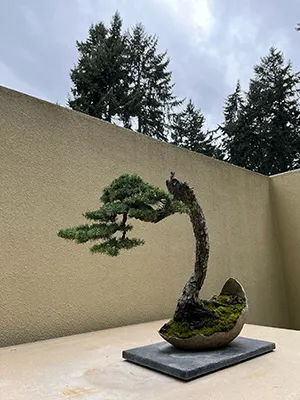
The museum's collection is one of two in the US solely devoted to bonsai. They rotate trees seasonally, with 60 (out of a total 150) on display at a time. Placards at each tree describe its unique grafting source, caretaker, and age, with many boasting incredible facts about the tree's history.
One tree is over 200 years old, having survived moves across various countries and subject to the care of multiple owners it has outlived. This trident maple was moved from Japan to the Panama-Pacific International Exposition in San Francisco in 1915, then purchased by a Japanese immigrant and nursery owner named Kanetaro Domoto. It remained in his family for over 70 years, surviving various hardships during the Great Depression and World War II, including the imprisonment of multiple caretakers in internment camps. It was given to the PBM by the third generation of Domotos in the '90s when caring for the tree became too exhausting for the family.
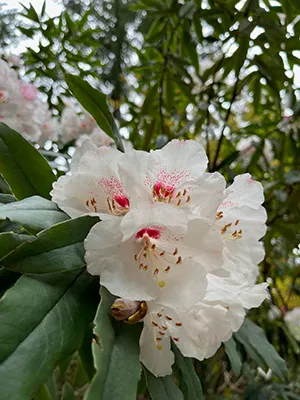
After browsing the bonsai collection, you can stroll among the rhododendrons, which are beginning to bloom beautifully, and will continue to do so through May, their peak.
The RSBG's 22-acre property is so diverse that, at my best estimate, you would need at least ten visits to see it all. Shades of pink, purple, yellow, and red dot the trails, pulling visitors in every direction to explore.
The gardens have the largest collection of rhododendron species in the world, with many other botanical varieties interspersed. At the center, a gazebo overlooks the flowers and foliage, perfectly positioned for a lunch picnic or afternoon with a book.
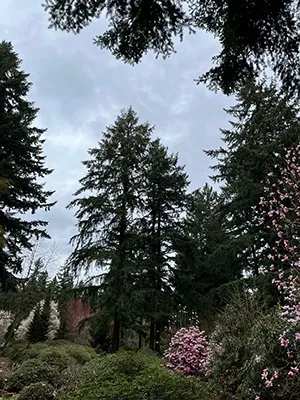
In addition to the brambly, weaving trail system, the gardens are home to a large conservatory, a stumpery (a stump- and log-heavy area with moss and fern growth), an azalea collection, a pond garden, and a magnolia grove, among other features. Each area demands at least a day's tour.
The bonsai collection and rhododendrons change with the seasons, and both facilities are hosting monthly events through the changes.
The RSBG has rotating weekend vendors selling plants at the nursery and occasionally hosts events with guest speakers during the summer. The PBM hosts a "Bonsai Basics" class most months and World Taichi Day on April 30, celebrates "Bonsai Fest" on Mother's Day weekend, and rings in the summer solstice by staying open until 9 p.m. on June 18.
There are plenty of ways to enjoy both spaces – alone, with friends, or with a date – and both sites offer welcome respite from the busy city.
The PBM and the RSBG are open Tuesday to Sunday from 10 a.m. to 4 p.m. Visit their websites for more information on events: https://pacificbonsaimuseum.org/ and https://rhodygarden.org/.


